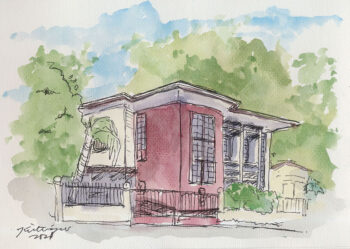
(Delivered at the Supreme Court during the oral arguments on the Anti-Terrorism Act on 2 February 2021)
Assalamu Alaikum, May it please the Court.
Your Honors, the right to self-determination is the right of the people to determine their political status and freely pursue their social, economic, and cultural development. This right is not only a treaty obligation but a customary international law that Moro and indigenous people are entitled to as held in North Cotabato vs. Republic.
Your Honors, the word “people” is mentioned 36 times in the Constitution in the context of rights conferred and duties imposed on the government. When the Constitution mentioned “people,” it refers collectively not only to the Filipino people in general but, it is our submission, that it also embraces Moro and Indigenous People by virtue of the recognition of their identity as “people” under Bangsamoro Organic Law and, Indigenous People’s Rights Act.
Your Honors, the prime duty of the armed forces and government is to protect the people under Section 3 and 4 of Article II, respectively, of the Constitution. Further military must respect “people’s rights in the performance of their duty” under Sec. 5 (par. 2), Article XVI while Congress in legislation has the duty to “protect and enhance the right of all the people to human dignity” in Sec. 1, Article XIII. While in Section 5, Article II, provides that: “the protection of life, liberty, and property” and cognate rights under the Bill of Rights is “essential for the enjoyment by all the people.”
Your Honors, as exhaustively discussed by my colleagues, the law is unconstitutional because failed to respect and protect the rights and freedom of the people.
Your Honors,we stated in the petition that Moro have been victims of historical injustice, massive land grabbing, structural discrimination, and human rights violations through extreme military measures like the case of Marawi Siege in 2017, Zamboanga Siege in 2013, Jolo Burning dubbed as “Jolocaust” in 1974, All-Out War policy in 2000 displacing one million people, and the list goes on.
Because of these extreme measures, violence has been normalized in our region and produced violent extremist groups. It is very unfortunate that we now have a law that institutionalizes extreme measures in the arbitrary curtailment of our freedom and liberty.
Your Honors, the Moro and Indigenous people have been victims of prejudice and racial profiling in law enforcement. Pulse Asia in 2006, in a national survey, revealed that 45% of its respondents perceived that Muslims are terrorists or extremists. And there are two cases this year in Abdullah and Sebilleno declaring the “outdated stereotypes and blatant prejudices“ upon the Moro.
Indigenous people have been victims of red-tagging and red-baiting. They are also victims of historical injustice, massive land grabbing, and structural discrimination.
Human rights violations have been committed against them especially their leaders, mostly in connection with their free and prior informed consent on their ancestral domain. In fact, the first to be charged under the assailed law are two Aetas in August 2020.
Your Honors, it is ironic that the assailed law securitized our freedom and liberty by making them an existential threat to our way of life. Violent extremists, in attaining their goals, they do not advocate, they do not protest, they do not conduct work stoppage or assert constitutionally protected rights. Your Honors, they use extreme violence.
Your Honors, the assailed law is a statutory response to the violent extremists in Marawi Siege whose goals, among others, are to deny us of our freedom and liberty. Their goals are coming into fruition with this law that negates our constitutional rights.
Our democracy is under siege, this Honorable Court is the last line of defense in protecting it. Please stand firm. Uphold the rights of the people.
In the name of freedom, liberty, and love, we petition to nullify the law.
((MindaViews is the opinion section of MindaNews. ‘Bangsamoro Speaks’ is open to any Bangsamoro who wants to speak up on any issue affecting the Bangsamoro people.
Algamar A. Latiph is a peace advocate and Moro human rights lawyer with 15 years of government service including serving as chair of Regional Human Rights Commission of the now defunct Autonomous Region in Muslim Mindanao. After his stint in government, he went nto private practice but also served as consultant to some officials in the ARMM and now in the Bangsamoro Autonomous Region in Muslim Mindanao. He was a Chevening Fellow at the University of Birmingham, United Kingdom in 2007, attended Conflict, Human Rights and Transitional Justice at Geneva Academy of International Human Rights in 2014 and Summer School on International Criminal Law at Leiden University, The Hague also in 2014)
Read also Atty Algamar Latiph’s August 2020 piece:
BANGSAMORO SPEAKS: In The Name Of Love







